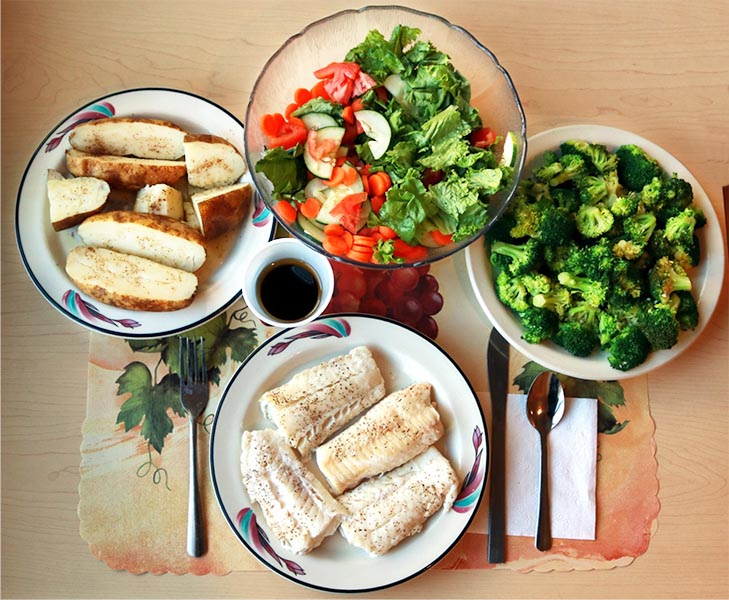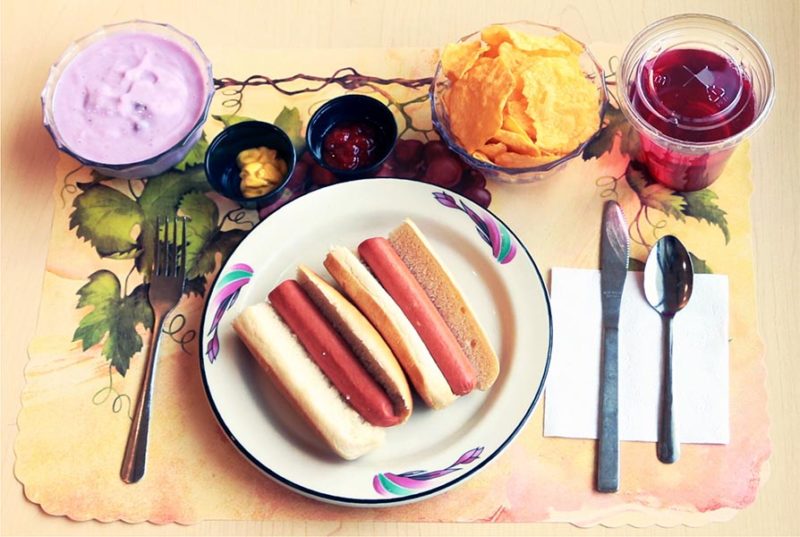Do ultra-processed foods make you gain weight?

People ate 500 more calories a day—and gained weight—when they were offered ultra-processed meals and snacks instead of unprocessed foods, says a recent, carefully controlled study.
What the study tested
Researchers measured every bite of food eaten by 20 adults who lived in a testing facility at the National Institutes of Health for one month. For two weeks they were offered ultra-processed packaged foods like hot dogs, tater tots, french fries, hamburger buns, processed cheese, sugary cereals, chips, cookies, pudding, and canned green beans. For another two weeks, they were offered unprocessed foods like fresh fruits and vegetables, unsweetened yogurt, beans, nuts, seafood, poultry, meats, and grains that were cooked and seasoned by the study staff.
“We gave people instructions to eat as much or as little as they wanted,” says Kevin Hall, lead author of the study and chief of the Integrative Physiology Section of the Laboratory of Biological Modeling at the National Institute of Diabetes and Digestive and Kidney Diseases.
The results were stunning. “People consumed 500 calories a day more on the ultra-processed foods compared to the unprocessed foods,” says Hall. “That led them to gain about two pounds on the ultra-processed diet and lose about two pounds on the unprocessed diet.”
A sample lunch on the unprocessed diet

The lunch included baked cod, baked russet potato with olive oil, steamed broccoli with olive oil and garlic, salad with balsamic vinegar and olive oil dressing.
A sample lunch on the ultra-processed diet
 The lunch included hot dogs, ketchup, mustard, baked potato chips, blueberry yogurt (with added fiber), and cranberry juice (with added fiber).
The lunch included hot dogs, ketchup, mustard, baked potato chips, blueberry yogurt (with added fiber), and cranberry juice (with added fiber).
More surprising results
The weight gain didn’t depend on the amount of sugar, fat, carbs, protein, sodium, or fiber in the ultra-processed meals because the unprocessed meals had similar levels of each.
“I didn’t expect to see such a huge effect,” says Hall, “because we matched the meals for for carbs, fat, protein, sugar, sodium, and fiber—the usual suspects that people have talked about for many years as driving the obesity epidemic.”
Interestingly, the extra 500 calories that people ate on the ultra-processed diet came entirely from consuming more fat and carbohydrates, rather than more protein. And people ate the ultra-processed meals more quickly than the unprocessed meals.
The good news about an unprocessed diet
“People didn’t like the unprocessed diet any less,” says Hall, “yet they were able to eat many fewer calories and lose weight on it.”
The results may also explain why low-carb, paleo, keto, plant-based, or other diets help some people lose weight, says Hall. Many diet books recommend that people avoid most or all processed foods.
What to do
Cover at least half your plate with fresh fruits or vegetables and fill the rest with healthy unprocessed foods like beans, low-fat dairy, fish, poultry, nuts, and whole grains.

